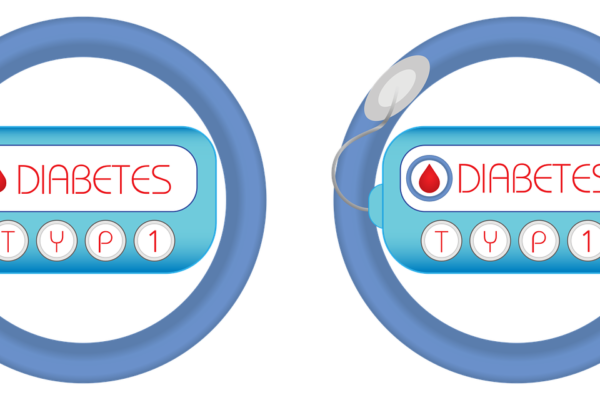Clomiphene Citrate
Clomiphene citrate, commonly known by the brand names Clomid and Serophene, is a widely used drug that plays an important role in birth control pills. It belongs to a class of drugs called selective estrogen receptor modulators (SERMs) used to treat female infertility.
The main treatment for clomiphene citrate is to stimulate ovulation in women who have problems conceiving due to anovulation or irregular menstruation.
It works by blocking the effects of estrogen on the hypothalamus, the gland in the brain responsible for regulating the hormones that regulate menstruation. Clomid blocks the negative feedback of estrogen and stimulates the release of follicle stimulating hormone (FSH) and luteinizing hormone (LH) from the pituitary gland, thereby promoting the growth and maturation of follicles.Clomiphene citrate is usually given orally in tablet form and is generally well tolerated.
The dosage and duration of treatment will vary according to the patient’s characteristics and the specific fertility issue being addressed. It is often prescribed as a first-line treatment for infertility because of its low cost, convenience, and effectiveness.Although Clomiphene citrate is mainly used in female infertility, it can also be used in male infertility and hormonal conditions. However, its off-label use should be carefully evaluated and monitored by a qualified physician.
In summary, clomiphene citrate is a broadly prescribed medication that has confirmed effective in supporting women with ovulatory disorders in accomplishing pregnancy. Its capacity to modulate hormonal stability and result in ovulation has made it an invaluable tool in reproductive medicinal drug.
Clomiphene- Mechanism of Action
Clomiphene, also known as Clomiphene Citrate, is a modified drug to treat infertility associated with polycystic ovary syndrome (PCOS). Understanding the mechanism of action of clomiphene is important to understanding its role as a cornerstone of PCOS treatment. Clomid is in a class of medications called selective estrogen receptor modulators (SERMs). Its mechanism of action mainly involves estrogen receptors in the hypothalamus, pituitary and ovaries.
These interactions lead to changes in hormonal signals that ultimately stimulate ovulation.For women with PCOS, hormonal imbalances can disrupt the ovulation process. Normally, the hypothalamus secretes gonadotropin-releasing hormone (GnRH), which causes the pituitary gland to release follicle stimulating hormone (FSH) and luteinizing hormone (LH). LH stimulates ovulation while FSH stimulates the growth of ovarian follicles.
In PCOS, high levels of androgens (male hormones) and estrogens disrupt the hormone balance. High estrogen levels create negative feedback to the hypothalamus, reducing GnRH secretion. As a result, this reduces FSH and LH production, inhibiting follicle growth and ovulation.Clomid works by blocking the negative message of estrogen to the hypothalamus. By binding to estrogen receptors, it competitively inhibits the binding of estrogen, preventing its inhibitory effect. This causes increased GnRH release from the hypothalamus.Increased GnRH stimulates the pituitary gland to release FSH and LH, which are important for the development and release of large eggs from the ovaries.
Thus, clomiphene can restore the hormone balance required for ovulation in women with PCOS.It is important to note that the mechanism of action of clomiphene is specific to the control of ovulation and does not directly refer to other PCOS symptoms such as hirsutism or irregular menstruation.
However, by stimulating ovulation, clomiphene indirectly helps regulate the body’s menstrual cycle and may improve fertility outcomes in women with PCOS.It is usually given by mouth for five days, usually from the second to the fifth day of menstruation. Monitoring the response to Clomiphene treatment with ultrasound scans and hormone tests allows doctors to adjust the dose and duration of treatment.
Mechanism of Action of Clomiphene citrate
Understanding the mechanism of action of clomiphene helps to understand its benefits and role as first-line therapy for PCOS-related infertility. Clomid offers hope to women with PCOS who are trying to conceive by addressing the underlying hormone imbalance and correcting ovulation.

Advantages of Clomiphene
Clomiphene Polycystic ovary syndrome (PCOS) is a complex condition that requires treatment to relieve many of its symptoms. Clomiphene, also known as clomiphene citrate, has become the first choice for women with PCOS to stimulate ovulation and increase fertility.
Ovulation Induction:
One of the main goals of PCOS treatment is to restore normal ovulation. Clomiphene has been extensively studied and found to be effective in stimulating ovulation in women with oligomenorrhea or amenorrhea and polycystic ovary syndrome.By blocking the negative feedback of estrogen and stimulating the release of follicle stimulating hormone (FSH) and luteinizing hormone (LH), clomiphene supports follicle development and ovulation.
Improves fertility:
Polycystic ovary syndrome is often associated with infertility due to irregular ovulation. Clomid’s ability to induce ovulation effectively increases the chances of fertility in women with PCOS who are trying to get pregnant. By treating ovulation, Clomiphene increases the chances of fertilization and pregnancy.
Cost Effective:
Clomid provides a more cost-effective treatment option compared to more invasive procedures such as assisted reproductive technology (ART).In vitro fertilization (IVF) and other assisted reproductive (ART) procedures can be very expensive and not everyone can afford them. On the other hand, Clomid is affordable and effective for many couples seeking treatment for PCOS.
Non-Invasive Methods:
Clomiphene as an oral medication provides non-invasive treatment for women with PCOS. It does not require surgery or injections, making it easier and less burdensome for patients. Clomid is easy to administer with few side effects, making it the choice of doctors and patients alike.
Safety Profile:
Clomid has a good safety profile and has been used clinically for decades. It is generally well tolerated, with mild and intermittent side effects such as hot flashes, abdominal discomfort and mood swings. Adverse events are rare. However, close follow-up by a physician is necessary to ensure correct dosage and measure response to treatment.
With Lifestyle Changes:
Clomiphene therapy is often supplemented with lifestyle changes for the treatment of PCOS.This may include dietary changes, regular exercise, weight management, and the use of other medications to treat symptoms such as hirsutism or insulin resistance. A combination of clomiphene and lifestyle changes can improve ovulation, pregnancy outcomes, and overall health in women with PCOS. It is important to note that although Clomid is effective in
inducing ovulation, it may not be suitable or effective for all women with PCOS. A physician should be consulted to develop an individualized treatment plan to suit each patient’s unique needs and circumstances.Clomiphene’s efficacy, affordability, no side effects, and safety make it a PCOS treatment especially for women who want to increase their fertility. By addressing ovulation dysfunction, Clomid plays an important role in helping women with PCOS fulfill their dreams of starting or expanding a family.
Disadvantages of Clomiphene Citrate
Multiple pregnancies: One of the disadvantages of clomiphene citrate is the increased risk of multiple pregnancies such as twins or triplets. These drugs increase the chances of pregnancy by encouraging the release of more eggs. Multiple pregnancies carry higher risks for both mother and baby, such as preterm birth, low birth weight, and complications during pregnancy and delivery.
Ovarian hyperstimulation syndrome (OHSS): In some cases, clomiphene citrate can cause OHSS, a condition caused by enlarged ovaries and fluid in the uterus. Mild cases of OHSS can cause abdominal pain, bloating and nausea, while severe cases can cause more serious problems such as difficulty breathing, severe abdominal pain and blood clots.
Ovarian cysts: Clomiphene citrate also increases the risk of ovarian cysts. These are fluid-filled sacs that form on the ovaries and cause pain or discomfort. In most cases, these cysts are benign and resolve on their own, but sometimes treatment is required.
Side Effects: Like all drugs, clomiphene citrate can cause many side effects. Side effects include hot flashes, mood swings, breast tenderness, nausea and headaches.
These side effects are usually temporary and subside when the drug is discontinued, but can still affect some people.
Market Share of Clomiphene
With increased production of Clomiphene citrate in the medical world, with around 3 million dollars of Clomiphene citrate being exported in the year 2022,in countries like Germany,Usa,UK,etc.
Around 3 Million dollars of Clomiphene citrate Powder was exported via Ralingtonpharma LLP (India),making it world’s largest Clomiphene Producer for the Powder,While in India Cipla holds the title of selling the highest number of drug under its brand name “Fertomid´ which allowed Ciplato gain a Profit of 20cr in the financial year 2021-2022.The next Manufacturer to earn a hefty profit from the sale of Clompiphene was “Cadilla Pharmaceuticals”,which sold 8 cr of Clomiphene tablets under its brand name “Clomidac”.
The graph of Clomiphene Citrate and it’s market Space has shown a elevation in the market since its introduction into the Indian Market in the Early 80’s

Graphical Interpretation of Market Share of Clomiphene Citrate Seller
As depicted above,Market share of Cipla lies around 48% making it largest seller of Clomiphene Citrate.Next to it is Cadilla with 22% of the market share making GSK Pahrmaceuticals third largest seller in terms of volume of tablet sold and the rest 20% is shared by other sellers in the market.
Clomiphene’s Reputed Manufacturers in India
| Product Name | Name of Manufacturer |
| Beclom | Bipi Lifesciences Pvt Ltd |
| Cerofene | MERCK Pharmaceuticals Ltd |
| Clofert | Svizera Healthcare (ACE) |
| Clomidac TAB | Cadila Pharmacutical Cfa |
| Fertomid | Cipla Ltd |
| Fertotab | GSK Pharmaceuticals ltd |
| Clomfert | Finecure Pharmaceuticals Ltd. |
Clomiphene Citrate Market: Key Takeaways
The Clomiphene citrate market is expected to witness a compound annual growth rate (CAGR) of 4% during the forecast period 2020-2027. This growth can be attributed to increased R&D activities, clinical trials and endorsements from key players in the industry. As pharmaceutical companies focus on improving the efficacy and effectiveness of clomiphene citrate, its demand is expected to increase steadily. Among various indications, the segment related to polycystic ovary syndrome (PCOS) is expected to be the market leader and have significant financial resources by 2027.
For example, the Centres for Disease Control and Prevention (CDC) reports that polycystic ovary syndrome is one of the leading causes of female infertility, affecting 6% to 12% of women of childbearing age in the United States in 2019. European studies have shown that polycystic ovary syndrome is one of the causes of female infertility. In the same year, the incidence of PCOS in England was 6.5% to 8%.
Many important companies work in the Clomiphene Citrate market and contribute to the growth and development of the market.These well-known companies include Teva Pharmaceutical Industries Ltd., Cipla Inc., Europe Pharmaceuticals Ltd., Shang Hai Trifecta Pharma Co. Ltd., Indian Serum Institute Pvt. Inc. Unichem Laboratories Ltd., and Par Pharmaceuticals. These companies are investing in research, innovation, and collaboration to meet the growing demand for clomiphene citrate and meet the changing needs of the pharmaceutical industry, diseases, and patients worldwide.With the increasing prevalence of PCOS and the continued efforts of major pharmaceutical companies, the clomiphene citrate market is expected to continue in the coming years.
The focus on improving fertility treatments and raising awareness of PCOS-related infertility will increase the demand for clomiphene citrate, making it an important treatment for women experiencing ovulation and fertility issues. As the market grows, patients and physicians can benefit from improvements in the availability and efficacy of clomiphene citrate and ultimately improve health outcomes in global currency.
Conclusion
In conclusion, this report provides a necessary framework for the clomiphene Citrate, a prominent drug used to treat PCOS conditions in India as at Global level. The basic interpretation of this report can be used to determine and accomplish various stanzas of medical fertility Industry that seems to be aligned with market growth and its volume of sales keeps increasing with days to come.
Clomiphene citrate has shown a larger impact towards handling a hormonally challenging condition kike Polycystic Ovary Syndrome (PCOS), It has enabled Physicians to treat their patients better with this large number of results outputs that has been extracted from large number of Clinical studies and practices. It has been an important drug in the clinical fraternity for the women’s fertility Treatment.
In 2040,The Clomiphene Citrate market is expected to grow with a CAGR of 5.6%,It has enabled major players like Cipla pharmaceuticals,Cadila Pharmaceuticals,etc to enter into the Global Market Space like European Nations.Enteries of Foreign players like Merck into manufacturing the space of this fertility drug,We will see more of the Market Players entering into the manufacturing space by the year 2040,and it will expand its horizon of manufacturing and selling of Clomiphene Citrate.
The Future seems positive for Clomiphene Citrate for both it’s Sellers and Manufacturers as more and more cases of Fertility and PCOS has started to be booked in the Physician Market,enabling a diverse market range to be catered by the first line of medicine and Clomiphene would be a hotsale for the same. It would be a tough road for compliance authorities as well to maintain a proper track of authorized Manufacturers track and to ensure no adultery in the market.
In summary, Clomiphene Citrate has been in the market since last Fifty years, making it reliable and clinically appropriate for the treatment of PCOS and Women Fertility conditions.Clomiphene citrate would enable the Pharmaceutical industry to earn decent amount of profits and research any alternative to it’s treatment enabling PCOS patients to combat the hormonal imbalance conditions giving them a good health and improving their conditions of life.
References
https://www.webmd.com/drugs/2/drug-13979/clomiphene-citrate-oral/details
- https://medlineplus.gov/druginfo/meds/a682704.html
4140#:~:text=The%20clomiphene%20citrate%20market%20is,period%20(2020%2D202
7).&text=Infertility%20is%20a%20health%20issue,both%20men%20and%20women%2
C%20worldwide.
share
Citrate-Market-to-Surpass-US-14.51-Million-by-2027-Says-Coherent-Market-Insights






Leave a Reply